Department of Indigenous Studies
The World Council of Indigenous Peoples define Indigenous peoples as ”people, living in countries which have populations composed of differing ethnic or racial groups, who are descendants of the earliest populations living in the area and who do not as a group control the national government of the countries within which they live.”
Indigenous Studies at the University of Lethbridge is dedicated to community-engaged scholarship, and research of the priorities and aspirations of Indigenous peoples in Canada and throughout the world. Within the department, Indigenous and non-Indigenous students have the opportunity to learn and think about Indigenous knowledges in creative, transformative and critical ways. The department offers courses that engender a rigorous and respectful understanding of Indigenous peoples’ languages, knowledges, cultures, histories, politics, arts, intellectual traditions, and research methodologies.
Department Highlights
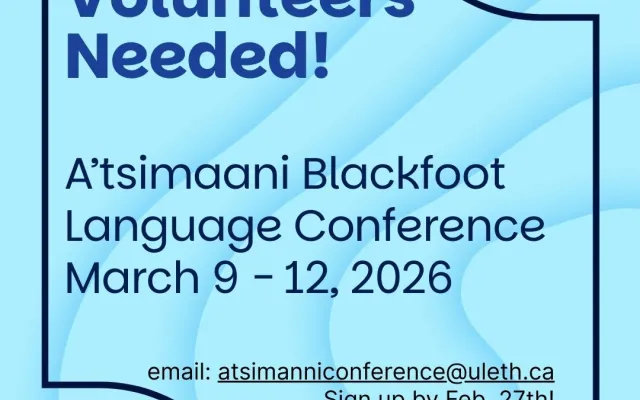
Volunteers Needed!
We are looking for volunteers to support the A’tsimaani Blackfoot Language Conference happening March 9–12.
We need help with:
- Staffing registration tables
- Wayfinding for guests
- Assisting Elders
- General conference support
⏰ Conference Hours:
8 a.m. – 8 p.m. each day
📍 Locations:
- Mon, March 9: UHall Atrium (University of Lethbridge)
- Tues–Thurs, March 10–12: Coast Hotel on Mayor Magrath Drive South
Even if you’re only available for a few hours, we’d love to have you!
Volunteers will be provided with breakfast, lunch, and/or dinner, depending on when you’re helping.
🔗 More info: atsimaaniconference.ca
📧 Interested? Email atsimaaniconference@uleth.ca by February 27.
Thank you in advance for your support!
— The A’tsimaani Team
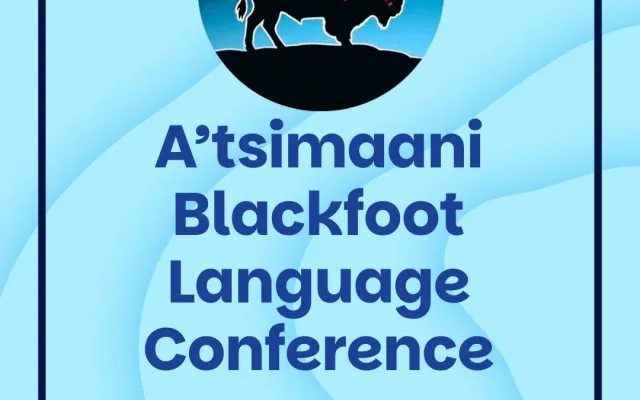
A'tsimaani Blackfoot Language Conference March 9-12, 2026
Join us for four days of celebrating Niitsi'powahsini, the Blackfoot language, and exploring ways to rematriate Blackfoot language and culture at Iniskim. Invited speakers will present keynotes and workshops on a range of topics.
Conference themes:
- Honouring language champions
- Official launch of the Blackfoot language archive
- Storytelling
- Showcase of community work
- Adult immersion programs
- Language and mental health
- Bridging school and community
- Youth and Elders - lifelong language learning
- Teaching and learning resources
- Language and technology
Registration open until Tuesday, March 3rd, 2026.
Locations:
- March 9th - Iniskim University of Lethbridge W6H10
- March 10th - 12th - The Coast Lethbridge Hotel and Conference Centre
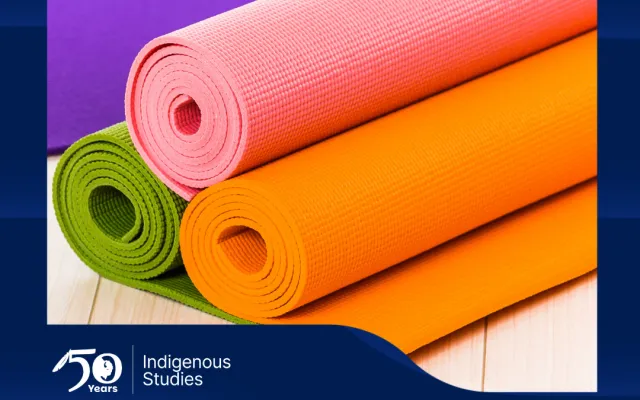
A'tsimaani: Blackfoot Yoga (iitaisoksistomio'pa)
Come and join us in a unique experience of Blackfoot Yoga with Elder Sylvia Russell.
Experience connecting the mind, body and spirit in a traditional Blackfoot style. This unique experience will relieve stress through self awareness and spiritual growth.
Our Elder will be on hand to help with the translation of the Blackfoot language.
When: Wednesday March 25th, 2026
Time: 12:00pm - 1:00pm
Where: Iikaisskini Gathering Centre (W650)
Snacks provided. All are welcome.
Please note all activities are subject to change.
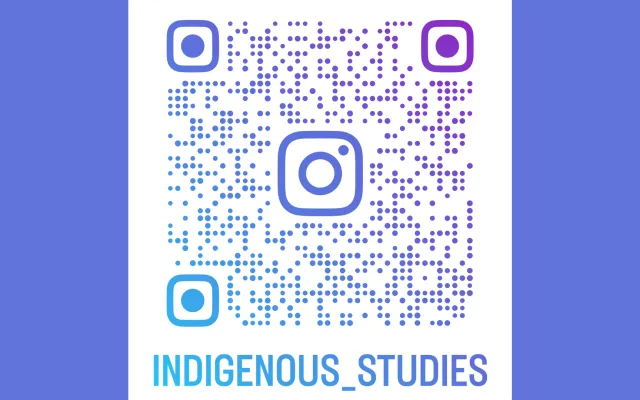
New Indigenous Studies Instagram Account
Keep up-to date on events and other happenings in the Indigenous Studies department by following our Instagram Account.

Shining Student Niihtaapookaa (Old Man River Child) Tatiana Weasel Moccasin
At the University of Lethbridge, Niihtaapookaa (Old Man River Child), Tatiana Weasel Moccasin has worked as a research assistant, travelled to Mexico for school, and embraced opportunities to enhance her creativity through creative writing and Indigenous art courses. Her future aspirations include becoming a teacher in Indigenous studies and language arts while continuing to advocate for Indigenous voices in education.
"I have so many great experiences here at the University. I loved the friends I've made, the club I joined (All My Relations) and the amazing professors I've been honoured to work with."
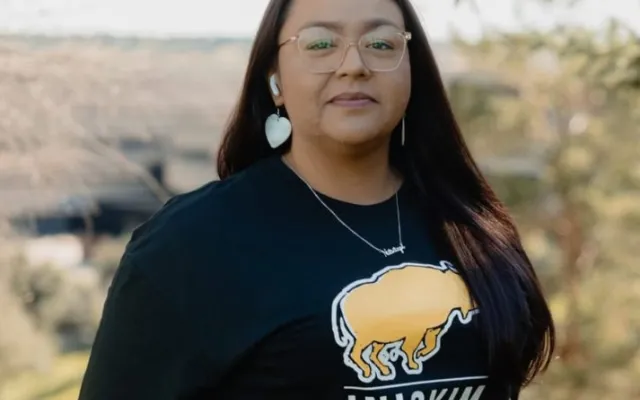
Shining Student Sii'piapaikkana (Night Shining) Dakota Wadsworth
Sii'piapaikkana (Night Shining), Dakota Wadsworth's (ISSC '24) time at the University of Lethbridge is a powerful testament to resilience, determination, and the strength of community. As a proud First Nations student and single mother, she has overcome financial barriers and personal challenges to excel in her studies, all while being inspired by, and inspiring those around her. Her story as a shining example of breaking through barriers to achieve dreams and create a brighter future.
"I used to be so scared to come to the University. But when I got here, I met some professors who were kind, encouraging, and truly there to assist when they could."
Blackfoot artist Zoe Buckskin to be featured at Vibe Fest, Abbondànza 2026
Spirit Prize winner Zoe Buckskin mixes tradition with personal expression
Indigenous Studies student and veteran Kendrick Fox found purpose in military service
Future Students Apply Now!
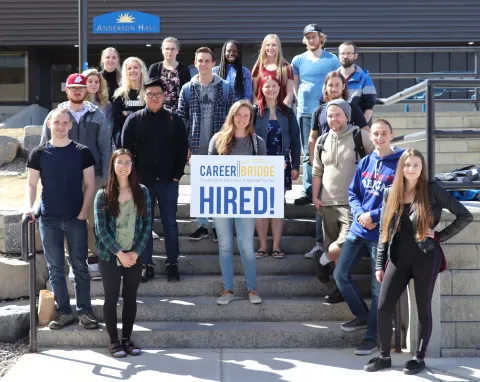
Put Your Knowledge to Work
Whether you’re looking for a more in-depth learning experience by assisting with research projects on campus or by testing your knowledge in a real-life work setting, we can help! The University of Lethbridge is proud to offer you an exceptional opportunity to explore professional development through academic programs and services designed to give you a competitive edge in a fast-changing world.
You have a bright future — experience it via Career Bridge at uLethbridge!
